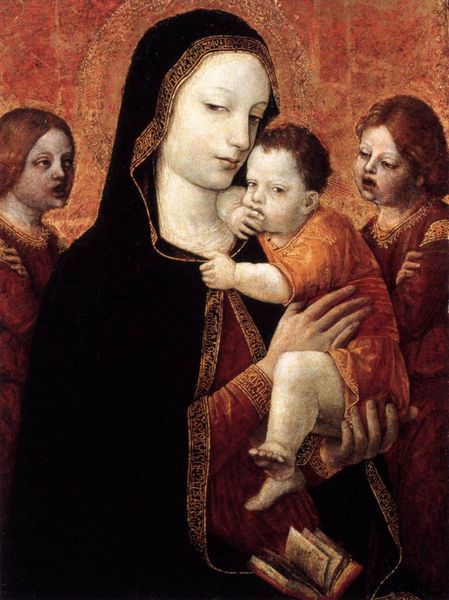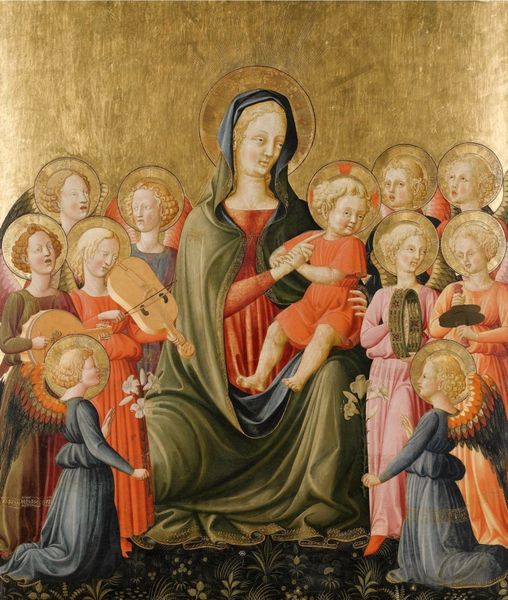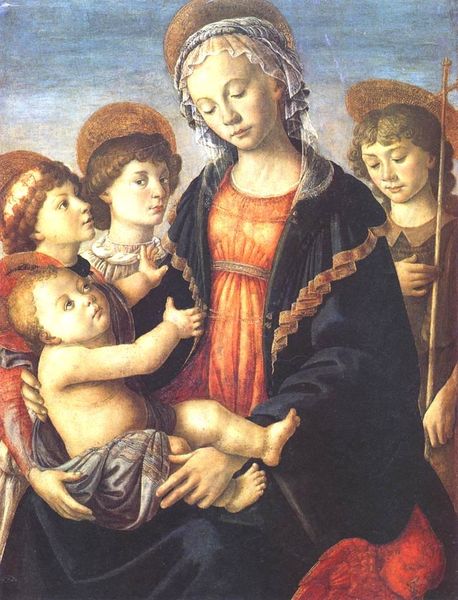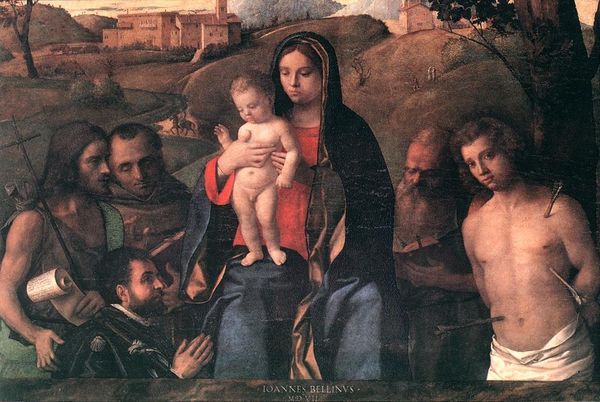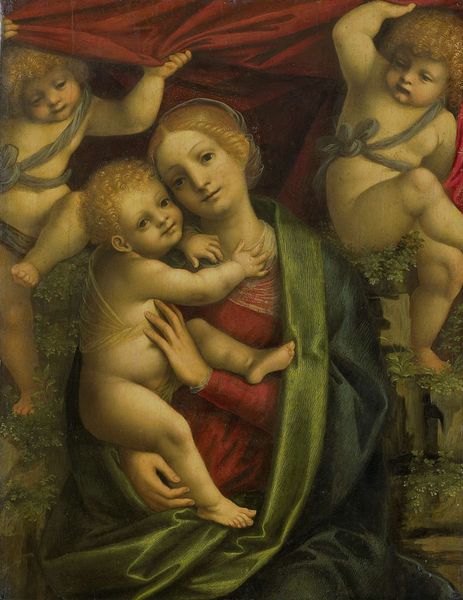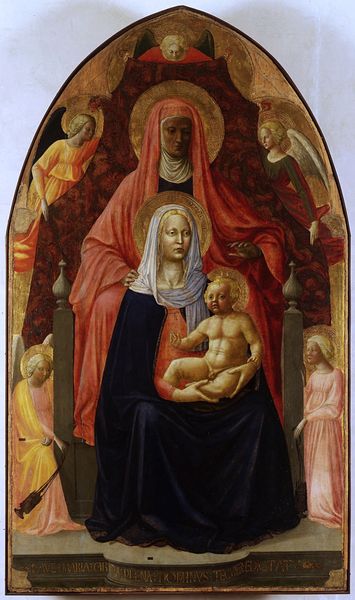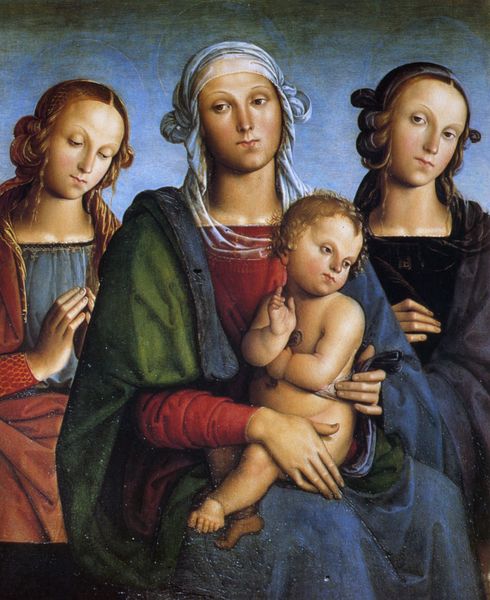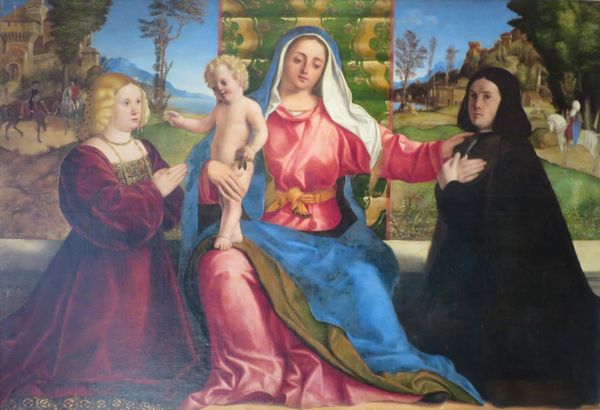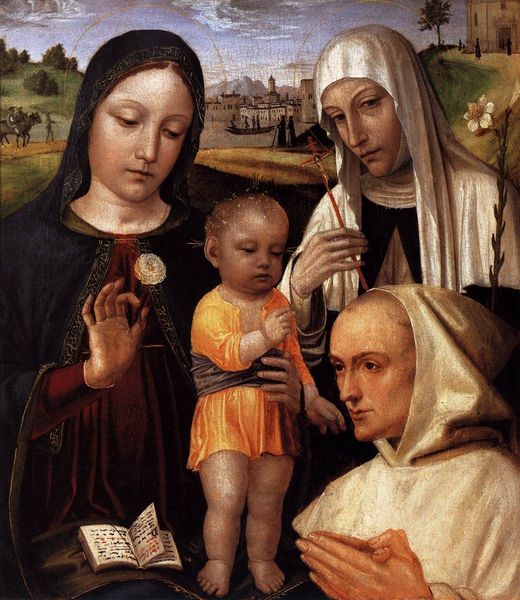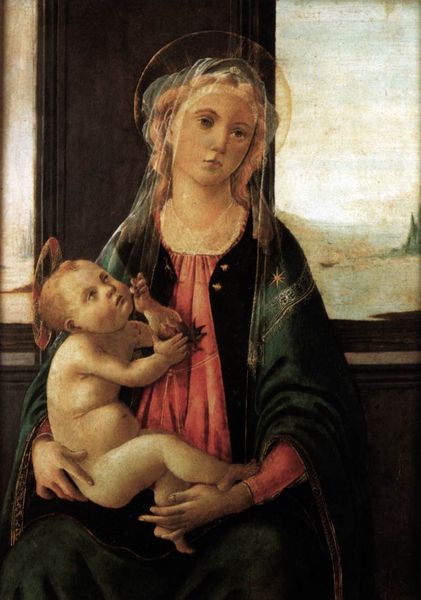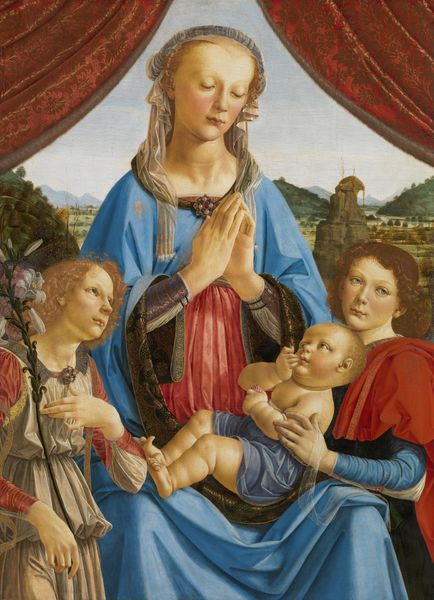
painting, oil-paint, fresco
#
portrait
#
painting
#
oil-paint
#
fresco
#
oil painting
#
child
#
portrait head and shoulder
#
underpainting
#
christianity
#
italian-renaissance
#
early-renaissance
#
virgin-mary
#
christ
Copyright: Public domain
Editor: This is Filippo Lippi's "Madonna of Humility," from about 1430, currently in Sforza Castle, Milan. Painted with oil paint and fresco, it's strikingly...crowded. The Virgin and Child are surrounded by a mass of figures. What do you make of this gathering? Curator: The “Madonna of Humility” is interesting, because its iconography departed from the traditional throne-based imagery of the Madonna. Placing her on the ground, *in humilitas*, democratized access to her image, making it resonate with the emerging mercantile class who also saw themselves as builders of their own fortunes, but did not always have ancestral lineage. How do you think this resonated with contemporary audiences? Editor: That's a really good point – shifting the Madonna to ground level makes her more relatable, less divine and remote. But what about all the people? Are they a general representation of devotion, or were they part of this accessibility message? Curator: They absolutely enhance the message! Consider that, at this time, powerful families began commissioning art featuring *themselves* amidst holy figures. This placement solidified their social standing while associating them with divine favor. The figures surrounding the Madonna might represent such a donor family. Editor: So the “humility” wasn't necessarily about a lower status, but a new way of gaining status? Through piety and connection to the sacred rather than birthright alone? Curator: Precisely. The Madonna of Humility served as a powerful visual tool for both religious devotion *and* social aspiration during the Early Renaissance. Editor: That gives me a lot to think about. It's amazing how one shift in presentation could affect a whole class's world view and artistic patronage. Curator: Indeed. By understanding the social context in which it was made, a painting of Madonna becomes not just a depiction of holiness, but also a record of society.
Comments
No comments
Be the first to comment and join the conversation on the ultimate creative platform.
